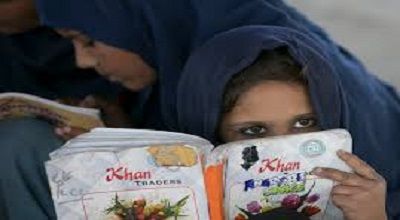Sex Education in Pakistan
The situation of sex education in Pakistan is quite complex and challenging. Sex education is a taboo topic in Pakistan’s conservative Muslim society, where fear of a backlash from Islamic clerics has prevented public awareness of family planning and reproductive health. Access to contraceptives remains limited, and women who do not want multiple pregnancies are usually not allowed to make those choices. As a result, Pakistan faces a population crisis, with a high fertility rate of 3.6 children per woman and a low contraceptive prevalence rate of 34 percent.
Read Now: Sex Education in Schools & Universities
However, some civil society organizations have piloted isolated initiatives to impart sex education in Pakistan, often calling it something like “life skills education” or “family life education” to avoid the word “sex”⁵. They hope to convey important knowledge to young people about their bodily development, sexual health, consent, healthy relationships, sexual violence prevention, and sexual diversity. They understand that the lack of sex education causes problems such as adolescent pregnancy, HIV, sexually transmitted infections, sexual abuse, and gender-based violence.
Read Here: Sex Education Season 4
Some government institutions have also supported the project of sex education in Pakistan, especially in some rural areas such as Karachi, Lahore, Islamabad, and John. They aim to help girls understand their rights and save themselves from violence. However, these efforts are still limited and face many challenges such as lack of time, resources, training, and parental or community opposition. Therefore, there is a need for more comprehensive, inclusive, and evidence-based sex education in Pakistan that can help young people make safe and responsible decisions about their sex and sexuality throughout their lives.
What is the Role of Religion in Sex Education?
The role of religion in sex education is a complex and controversial topic that varies depending on the historical, cultural, and social context. Religion can influence sex education in different ways, such as:
– Providing moral guidance and values for sexual behavior and relationships. Some religious groups believe that sex education should be based on their religious teachings and doctrines, such as the sanctity of marriage, the prohibition of premarital sex, homosexuality, abortion, and contraception, and the promotion of abstinence, fidelity, and chastity. Other religious groups may have more liberal or progressive views on sexuality, such as the acceptance of sexual diversity, the respect for individual autonomy and choice, and the recognition of sexual pleasure as a gift from God.
More Here: Role of Parents in Sex Education
– Supporting or opposing public sex education programs and policies. Some religious groups may advocate for comprehensive sex education that covers a wide range of topics, such as anatomy, physiology, reproduction, contraception, sexually transmitted infections, pregnancy, abortion, sexual orientation, gender identity, consent, healthy relationships, sexual violence prevention, and sexual rights. Other religious groups may oppose such programs and policies, arguing that they are inappropriate, immoral, or harmful to young people. They may prefer abstinence-only education that focuses on delaying sexual activity until marriage or no sex education at all.
More here…
Creating alternative or complementary sex education programs and resources for their own communities or beyond. Some religious groups may develop their own sex education curricula or materials that reflect their religious beliefs and values. They may offer these programs or resources to their members or to the wider public through various channels, such as schools, churches, mosques, synagogues, temples, media, or online platforms. These programs or resources may aim to educate young people about their sexual health and well-being from a religious perspective or to persuade them to adopt a certain sexual behavior or lifestyle.
Religion and sex education have a long and intertwined history that continues to shape the current debates and practices in this field. There is no single or simple answer to the question of what is the role of religion in sex education. Rather, it is a matter of exploring the diverse and dynamic interactions between religion and sexuality in different contexts and times. For more information on this topic, you can read some of the articles from the web search results.
Note:
Its not important to agree with me, everyone has their own opinion. If there are any mistakes and misinformation in this post. Please inform and correct me by writing actual information in the comment section below. I am waiting your good thoughts and comments. Thanks
